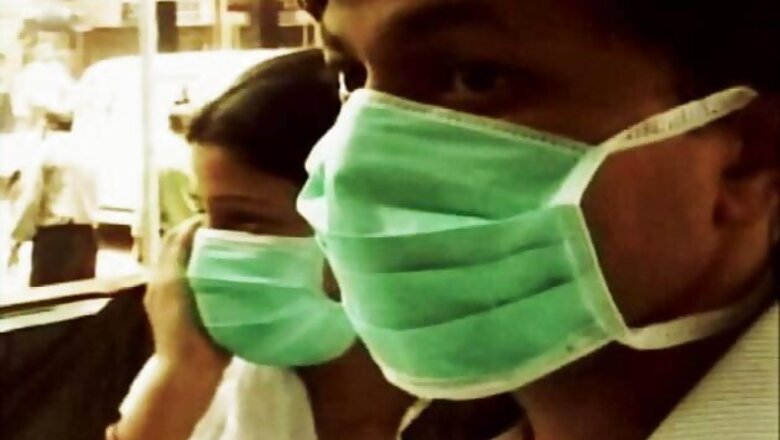
views
Swine Flu has resurfaced in the country with 456 cases and 91 deaths since the start of the year. Though the weather is conducive for the virus to spread fast, doctors are saying there is no need to panic just yet, the virus has lost its teeth and is no longer as deadly as it was thought to be in 2009. Nonetheless it is important to know the symptoms so you can catch it in the early stage.
Usually the symptoms of swine flu are mild for most people. However, it can be serious for people with underlying health complications like Heart Diseases, Cancer, HIV, Diabetes or pregnant women, elderly or children with low immunity.
Typical symptoms are:
- A sudden fever - 100 degrees F or above
- A sudden cough
Other symptoms may include:
- Headaches
- Tiredness
- Chills
- Cough and sneezing
- Headache
- Weakness and fatigue
- Aching muscles and joints
- Sore throat
- Runny nose
- Diarrhoea or stomach upset
- Loss of appetite
You must see a doctor immediately if:
- you have a serious existing illness that weakens your immune system, such as cancer
- you are pregnant
- you have a sick child under one
- your condition suddenly gets much worse
- your condition is still getting worse after seven days (five for a child)
High-risk groups
For most people, swine flu is a mild illness. Some people get better by staying in bed, drinking plenty of water and other fluids and taking flu medication.
However, some groups of people are more at risk of serious illness if they catch swine flu, and will need to see a doctor immediately and start taking antiviral medication, Tamiflu, in the onset of the flu.
It is already known that you are particularly at risk if you have:
- chronic (long-term) lung disease,
- chronic heart disease,
- chronic kidney disease,
- chronic liver disease,
- chronic neurological disease (neurological disorders include motor neurone disease, multiple sclerosis and Parkinson's disease),
- immunosuppression (whether caused by disease or treatment) or
- diabetes mellitus.
Also at risk are:
- patients who have had drug treatment for asthma within the past three years,
- pregnant women,
- people aged 65 and older, and
- young children under five















Comments
0 comment